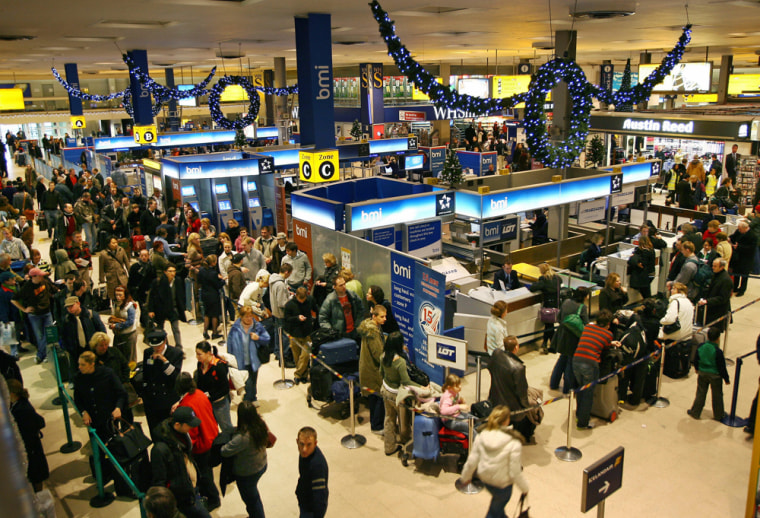Done with your taxes? If you’re planning on traveling any time soon, they may not be done with you. Thanks to escalating excise taxes and newly implemented fees, many travelers are finding out that tax season has just begun.
Call it what you will — tourist tax, head tax, passenger duty — the effect is the same. Those of us who are just passing through are being asked to pay a little more for the privilege. “Tax the tourists!” is the rallying cry, and it’s being heard in more places all the time. Uncle Sam, it turns out, isn’t the only one with his hand in your pocket.
Thanks for visiting, now pay up
Last August, voters in Alaska approved Ballot Measure 2, which levied a $50-per-person charge on all visitors who arrive by cruise ship. If you’ve booked an Alaskan cruise, you’ve already paid it as most cruise lines passed the fee on to their guests. If you’re still considering a cruise, you’ll need to factor in an extra $50 per person.
Most of the money ($46) is earmarked for port facilities and other visitor services; the rest is slated to fund a corps of onboard “Ocean Rangers” who will monitor the ships for environmental compliance. With almost 1 million cruisers visiting Alaska in a typical season, the state could receive nearly $50 million per year.
Meanwhile, if you’re flying to the U.K. any time soon, you can expect to pay more, as well. Last December, the government announced that it was doubling its Air Passenger Duty, the fee it levies on commercial flights leaving British airports, effective February 1.
The new fees range from £10 ($19.86) for economy fares within Europe to £80 ($158.88) for business and first-class fares on long-haul flights. (Economy fares on long-haul flights face a duty of £40 or $79.44.) The added revenue, which is expected to approach £1 billion or nearly $2 billion per year, is supposed to be used to promote public transportation and to mitigate the airlines’ effects on the environment.
Locals vote, tourists don’t
Of course, taxing travelers is nothing new. If you’ve ever booked a hotel room or rented a car, you know the price you end up paying is almost never the price you’re originally quoted. Excise taxes, occupancy taxes, concession fees — we pay them for one simple reason: Locals vote, tourists don’t, and politicians who propose raising taxes on the former typically find themselves unpopular or unemployed. As for the rest of us, well, we usually don’t see the charges until we’re about to head home.
In some cases, such added fees are warranted. After all, we contribute to local traffic jams, crowd onto mass-transit systems and impact everything from regional water supplies to waste-disposal systems. We use local resources; we should help pay for them.
But what constitutes a reasonable contribution? In larger U.S. cities, taxes and surcharges can easily add 15 percent to your hotel bill and almost 30 percent at the car rental counter. According to a recent study by Travelocity, the average tax on rental cars at major U.S. airports jumped from 25.8 percent in March 2005 to 28.04 percent in December 2006. In Seattle, Anchorage and Atlanta, taxes added more than 50 percent to the average rental car bill; in Kansas City, the premium was a whopping 63 percent.
Fifty percent here, 63 percent there — pretty soon you’re talking real money. In fact, state and local governments have collected nearly $6 billion in rental car excise taxes since 1990, says Sean Busking, executive director for the American Car Rental Association, an industry lobbying group. “The car rental excise tax,” he adds, “is the epitome of taxation without representation and political expediency.”
It’s also an exceedingly popular option. According to Busking, 97 car rental excise taxes have been enacted since 1976, with seven more already approved under pending legislation. Some of the money raised is pegged to projects that travelers actually utilize (e.g., transportation); some goes to facilities we don’t (e.g., stadiums); and some simply disappears into the local government’s general fund. Like the signs always say: Your tax dollars at work.
Getting our money’s worth
All of which adds to the sting of the latest round of “tax the tourist” fees. A few folks, I suppose, will cross Alaska off their future cruise itineraries while some Europe-bound travelers will bypass the U.K. (although higher fares to alternate cities will wipe out any savings). Most of us, though, will do what we do every April: reach for our wallets and wince when taxes take a bite out of our assets.
So, here’s hoping that Alaska and the U.K. at least live up to the spirit of their new fees and apply our “contributions” to projects that either benefit us or ameliorate the effects of our visiting. Otherwise, they’ll just be two more examples of taxation without representation.
And we all know what that can lead to.
